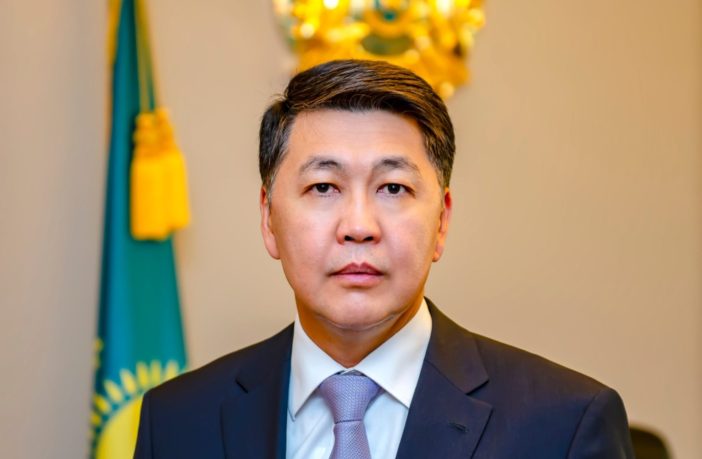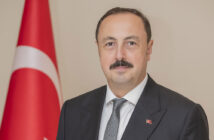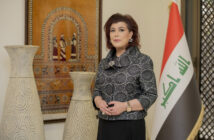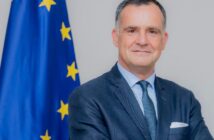Embassy of the Republic of Kazakhstan
In 2021, Kazakhstan celebrates the 30th anniversary of its independence. What are the main achievements over these three decades?
In the early years of independence, Kazakhstan, similar to the other former USSR countries, faced several socio-economic challenges, such as hyperinflation, a steady budget deficit, a rapid decline in population incomes, and unemployment. The government could not pay salaries and pensions. The number of unemployed reached two million people. Over 130 large Kazakhstani enterprises were closed, left without sales markets, raw materials, and working capital. Country GDP fell by 60% over the year. Annual inflation exceeded 2000%.
Kazakhstan’s leadership had a critical mission to undertake a set of urgent socio-economic transformation measures to address these challenges and put the country back on the track of intensive development through economic reforms. President Nursultan Nazarbayev’s slogan, “First the economy, then the politics,” predetermined the further vector of the country’s development and became the formula for success in carrying out reforms throughout the post-Soviet period.
Kazakhstan has successfully carried out two modernizations. The first modernization began with independence. Kazakhstan has shifted from planning to a market economy. The second modernization started in the late 1990s, with the adoption of the Kazakhstan – 2030 Strategy and establishing a new capital Astana (now Nur-Sultan).
In 2012, the country met ahead of schedule implementation of all the tasks laid down in the Kazakhstan – 2030 Strategy. Kazakhstan entered the list of the 50 most competitive countries globally and a group of countries with an average level of development. At the same time, the government adopted a new Strategy, “Kazakhstan – 2050,” which set the goal of becoming one of the 30 most advanced countries in the world. Since the beginning of 2017, the third modernization has been implemented in Kazakhstan. The first President, Nursultan Nazarbayev, set his goals for Kazakhstan’s people: “Third Modernization of Kazakhstan: Global Competitiveness.”
Thus, over the three decades of its modern history, Kazakhstan, under the leadership of Nursultan Nazarbayev, has passed its long and incredible path from a peripheral republic of the Soviet Union to a competent member of the world community, regional leader, modern state with a strong economy and stable society.
The Kingdom of Saudi Arabia was among the first Arab and Muslim countries, which recognized Kazakhstan’s independence. What were the leading factors for the establishment of official diplomatic relations between Saudi Arabia and Kazakhstan?
Indeed, Saudi Arabia was among the first countries to recognize our independence. Since that time, Kazakhstan and Saudi Arabia have developed stable and constructive relations. I would like to emphasize that the first foundations of friendship between the two nations trace back to the 1920s and 1930s, when Mr. Nazir Torekulov, a Kazakh by nationality, was appointed the USSR’s first permanent representative in Saudi Arabia.
Kazakhstan is immensely grateful to Saudi Arabia’s leadership for the continued support in the early years of our independence. The Kingdom, one of the first countries, provided political, moral, and financial support for the transfer of the republic’s capital to Astana (now Nur-Sultan) and several grants and soft loans for the implementation of several infrastructure projects. This support was priceless, given that Kazakhstan was still going through difficulties during its transformation.
The Kazakh-Saudi partnership based on the proximity and commonality of cultures, traditions, and spiritual values has broad prospects. I am confident that bilateral relations will strengthen from year to year, reaching new horizons to benefit people-to-people relations. And we will make every effort for this.
For 27 years, a constructive political dialogue has been established between the two countries. Can you discuss any gaps in cooperation that should be addressed. What is your vision for the next decades?
In the political dimension, Saudi Arabia and Kazakhstan have established a constructive dialogue at the highest level. At the same time, I have to state a decline in the volume of mutual trade. Therefore, as of now, the main task is to fill this gap, as no matter how well political relations develop, the economy remains a key indicator of bilateral cooperation.
Despite the general recession in the global economy amid the COVID-19 pandemic, two sides take comprehensive measures to enhance trade, economic, and investment ties. Thus, in 2019, to stimulate business and tourist activity, Kazakhstan provided visa-free entry to all Saudis. At the same time, Kazakhstan citizens got the right to a simplified entry into Saudi Arabia.
There are also excellent prospects in the trade, including agricultural, engineering, chemical, textile, metallurgical, construction products. The main obstacle in developing trade and economic activity is slightly hindered logistics between the countries. Nevertheless, representatives of the two countries are working to find options for resolving this challenge.
Speaking about the subsequent development of relations between fraternal countries, I would like to express the hope that Kazakh-Saudi cooperation will move to a progressive development in the next decades, which will develop in the spirit of eternal friendship and mutual understanding.
Since 2001, this is your second assignment to the Kingdom. What changes have you witnessed upon arrival to the Kingdom almost two decades later?
In two decades, Saudi Arabia has changed beyond all recognition. Several years ago, one could see mainly small buildings in Riyadh. Now, Saudi capital is a metropolis with various beautiful skyscrapers and buildings with modern architectural solutions. The changes have affected not only the infrastructure but also life in the Kingdom. Women gained the right to drive. Cinemas reopened all over the country. Multiple significant sports and cultural events take place in the Kingdom, making it an engaging destination. The main impetus for these transformations is the Saudi Vision 2030, thanks to which one can observe the daily positive change in the Kingdom’s image.
Kazakhstan welcomes all the successes of the Kingdom. I am confident that under King Salman and Crown Prince Muhammad bin Salman’s far-sighted and wise leadership, Saudi Arabia will achieve all its goals.
The COVID-19 pandemic shocked the world. Nevertheless, world scientists have managed to develop vaccines, and the entire world community is optimistic about the post-pandemic future. Please elaborate on the development of a Kazakh vaccine, which is the first vaccine among Muslim countries.
Indeed, Kazakh scientists can be proud of their successes. The QazCovid-in or QazVac vaccine developed in Kazakhstan’s laboratories is the first and, so far, the only vaccine among the Islamic world countries approved and included in the list of vaccine candidates of the World Health Organization.
Diplomatic Quarter (DQ) houses most of the embassies and foreign missions in the Kingdom. How do ambassadors use this opportunity to strengthen bilateral and multilateral ties?
In most countries, diplomatic missions are located in different places of their capitals. This poses certain disadvantages because to meet with colleagues or participate in diplomatic receptions, one has to spend much time getting from one point of the city to another.
In contrast, in Diplomatic Quarter, everything is arranged differently. We, diplomats, always maintain close contact with each other, pay a courtesy visit, exchange information, coordinate actions within international organizations, and hold joint events. Therefore, we are grateful to the Kingdom’s authorities for creating the DQ, which significantly facilitates daily work and saves time, the most valuable resource for all diplomats.
What is your favorite place in DQ and why?
Since the residence of the Ambassador of Kazakhstan is located in the Diplomatic Quarter, my home is the most precious place. As the saying goes, “Home, sweet home.”
My other favorite places in DQ are Oud Square and Rock Park, next to the Embassy of Kazakhstan, where one can spend time with family in the evenings and weekends. Last but not least, DQ’s well-developed infrastructure allows me to practice my favorite hobby, walking; every day, I walk 5-6 kilometers around DQ.
Embassy of the Republic of Kazakhstan
Diplomatic Quarter
6691 Amr Aldamri St, Al Safarat,
Riyadh 12511 Saudi Arabia
Contact No: 011 480 6406




